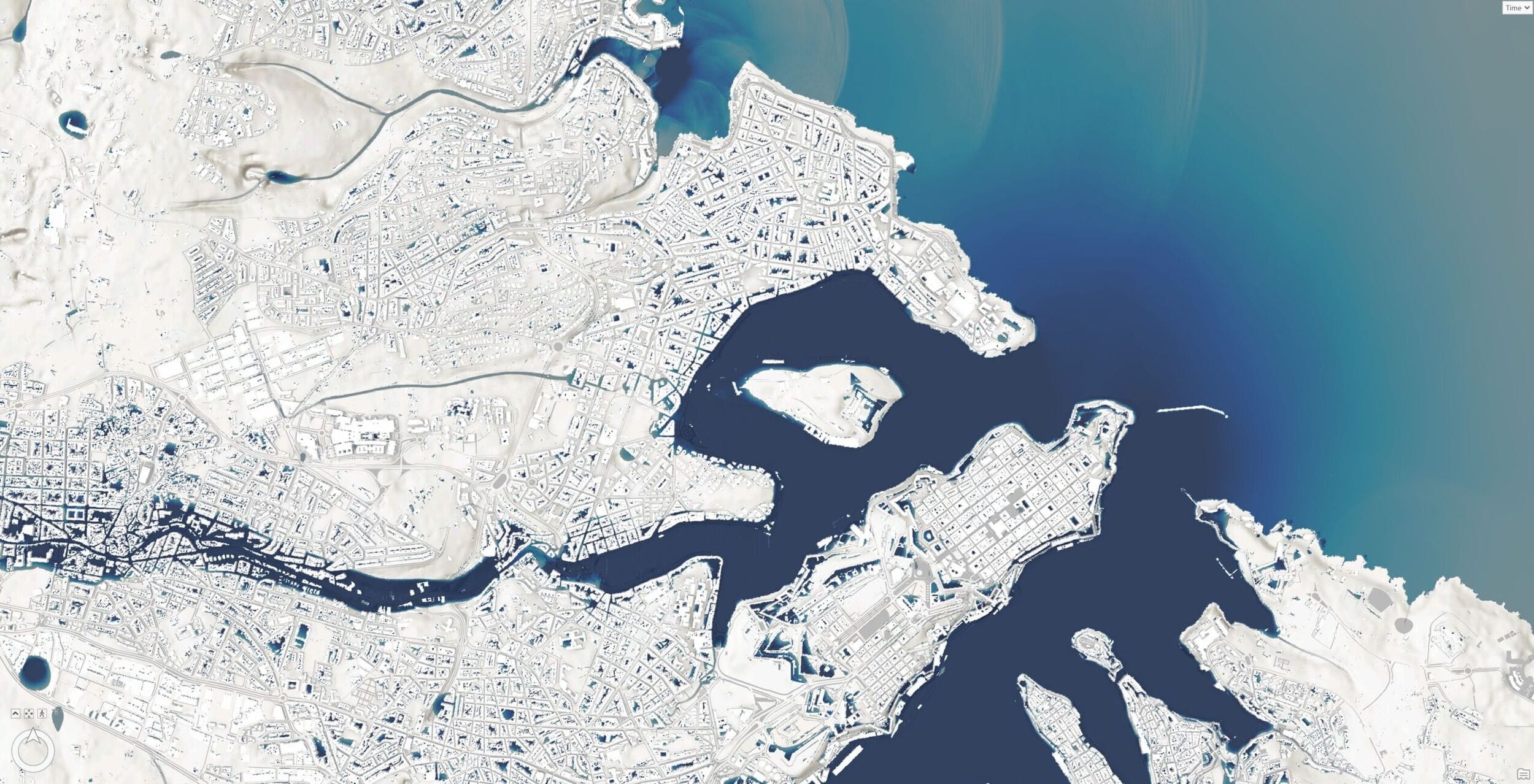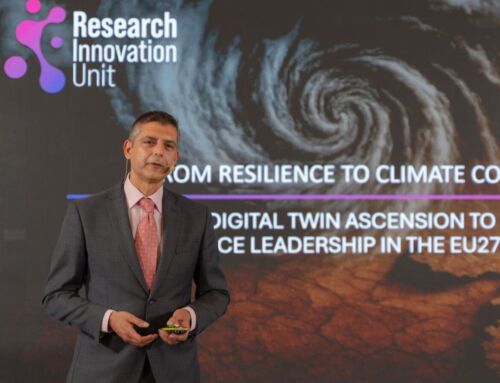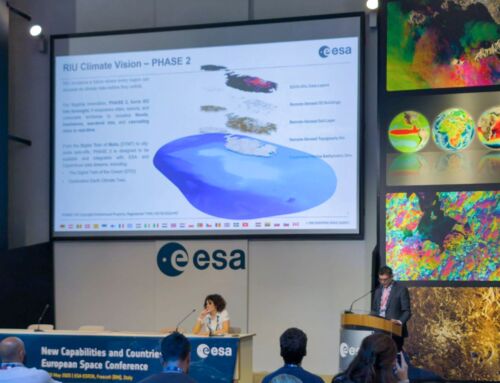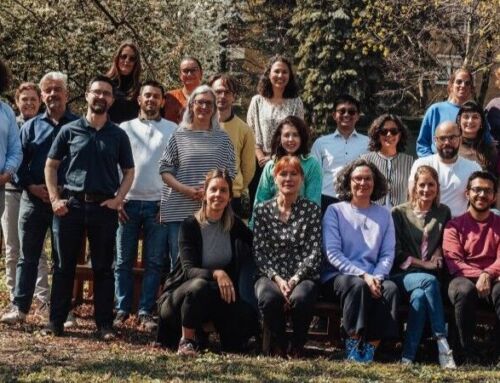On 25 February 2025, the Research Innovation Unit (RIU) contributed to a landmark policy-science interface in Brussels, as Fabian Borg, climate simulation expert and founder of the PHASE 2 engine, delivered a strategic pitch to a joint delegation of DG CLIMA and DG CNECT.
The meeting focused on strengthening synergies between climate adaptation priorities and digital twin innovation, positioning Malta as a frontrunner in applying geospatial intelligence and AI to European climate challenges.
PHASE 2: A Scalable Framework for Europe
At the heart of the session was PHASE 2 (Predictive Hyper-Adaptive Simulation Engine) — an independently developed digital twin platform designed to simulate high-impact climate events and enable actionable risk intelligence. Demonstrations included:
- 3D storm surge modelling from the Medicane Helios simulation
- Urban Heat Island and Heat Severity mapping using real terrain and satellite data
- Early capabilities for AI-driven nowcasting and flood propagation analysis
The meeting underscored PHASE 2’s potential to become a modular, interoperable system that aligns with existing EU frameworks such as EUCRA, ECAP, and Destination Earth.
Institutional Engagement
The joint meeting was convened with representation from Unit CLIMA.E1 (Adaptation and Resilience to Climate Change) and digital infrastructure experts from DG CNECT. While initially framed as an exploratory pitch, the dialogue quickly evolved into a constructive exchange on integration opportunities, scalability, and pathways to EU-level relevance.
DG CLIMA representatives welcomed the bottom-up innovation demonstrated by PHASE 2 and recognised the value of testing high-resolution simulations at national scale. DG CNECT’s interest centred around the technical architecture and open-source backbone, which offers cross-border replication potential.
Malta as a Testbed for European Adaptation
The discussion highlighted Malta’s suitability as a demonstrator country, particularly given its small but complex geography, high climate exposure, and agility in digital transitions. The Digital Twin of Malta (DTMT-01) — launched in December 2024 — was presented as a real-world deployment of the PHASE 2 engine in national climate resilience planning.
The platform’s relevance extends across:
- The Preparedness Union Strategy
- EU missions on Climate Adaptation and Digital Transition
- Future calls under Digital Europe and Horizon Europe frameworks
Next Steps and Strategic Alignment
The meeting concluded with clear interest in:
- Receiving a technical brief and roadmap for PHASE 2 alignment with EUCRA risk categories
- Exploring synergies with ESA, EEA, and DestinE for harmonised simulations
- Encouraging participation in upcoming adaptation knowledge exchanges
As part of ongoing cooperation, the team will continue engaging at expert level and contribute to technical working groups advancing EU climate resilience intelligence.
Reflections
This joint meeting reflects RIU’s ongoing commitment to science-based innovation and strategic alignment with European climate policy. It reinforces Malta’s potential to lead as a model microstate in operationalising climate intelligence and digital governance.






